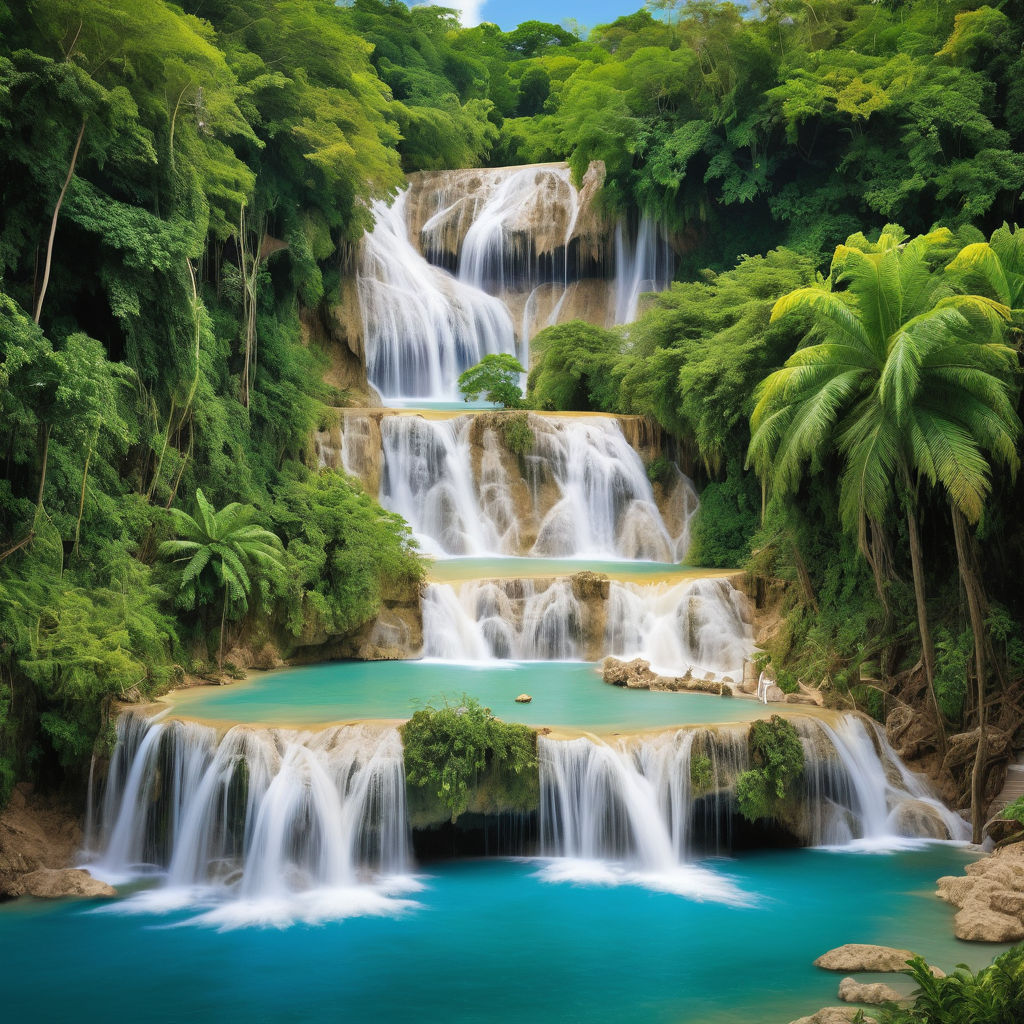Introduction to Jamaica: Culture, Heritage, and Cross-cultural Engagement
Explore Jamaica's Vibrant Culture and Cross-cultural Connections

Introduction to Jamaica
Jamaica, an island nation in the Caribbean, is renowned for its vibrant culture, stunning landscapes, and rich history. Located south of Cuba and west of Hispaniola, it is the third-largest island in the Caribbean Sea. Kingston, the capital city, is the cultural and economic hub, known for its music, museums, and vibrant street life. Other significant cities include Montego Bay, famous for its resorts and beaches, and Ocho Rios, a popular cruise ship port. Jamaica’s cultural heritage is a unique blend of African, European, and indigenous influences. This diversity is reflected in its music, dance, language, and cuisine. The country is the birthplace of reggae music, made famous worldwide by Bob Marley. Traditional Jamaican dancehall and ska also play significant roles in the island's cultural identity. The cuisine, featuring dishes like jerk chicken, ackee and saltfish, and curried goat, reflects the island's agricultural bounty and cultural amalgamation.
Cross-national and Cross-cultural Understanding
Jamaicans generally perceive and engage with other cultures with openness and enthusiasm. The island’s history as a major hub of the transatlantic slave trade has created a society that is inherently multicultural. This history has fostered a national identity that values cross-cultural understanding and global connections. Cultural exchanges are integral to fostering cross-cultural understanding in Jamaica. The island hosts numerous festivals and events that celebrate both local and international traditions. For example, the Reggae Sumfest in Montego Bay attracts artists and audiences from around the world, promoting cultural exchange through music and dance. Additionally, Jamaica’s participation in international organizations such as the Caribbean Community (CARICOM) and the United Nations (UN) facilitates cultural and educational exchanges. Educational programs in Jamaica emphasize global awareness and cross-cultural understanding. Schools and universities incorporate multicultural perspectives into their curricula, encouraging students to appreciate and respect diversity. The University of the West Indies (UWI) and other higher education institutions collaborate with international partners to facilitate student and faculty exchanges, enriching the educational experience and fostering global connections.
Interactions and Social Dynamics
Typical interactions between Jamaicans and foreigners are characterized by warmth, hospitality, and a laid-back attitude. Social behaviors in Jamaica reflect a blend of traditional customs and contemporary influences, emphasizing respect for others, friendliness, and communal living. Communication styles in Jamaica are generally informal and expressive. English is the official language, but Jamaican Patois, a creole language, is widely spoken and adds a unique flavor to everyday interactions. This bilingualism facilitates interactions with tourists and expatriates, making it easier for them to integrate into the local community. Cultural norms in Jamaica place a strong emphasis on respect for elders, family values, and community involvement. These norms create a welcoming and inclusive atmosphere for foreigners, who often find it easy to adapt to the local way of life. Public displays of affection are generally accepted, reflecting the country’s open and expressive nature, and social gatherings and communal activities are vibrant and inclusive.
Views on Dating and Relationships
Attitudes towards dating and relationships with foreigners in Jamaica are generally open and accepting, though influenced by cultural and traditional norms. Jamaicans recognize the opportunities for cultural exchange and personal growth that such relationships can bring. However, traditional customs and values play a significant role in shaping these views. Family involvement is significant in relationships in Jamaica, with elders often playing a crucial role in the approval process. Traditional customs emphasize respect, patience, and the gradual building of trust in relationships. While modern dating practices influenced by global trends are becoming more common among younger generations, traditional values still hold sway in many communities.
Marriage and Family
Marrying a foreigner in Jamaica involves navigating both legal and social considerations. Legally, the country has clear regulations governing marriage, including residency requirements and the need for proper documentation. Socially, cross-cultural marriages are generally accepted, though couples may face challenges related to cultural differences and integration. Familial acceptance is a key factor in cross-cultural marriages. Jamaican families can be protective, and gaining their approval is often essential for the relationship's success. However, the diverse cultural landscape of Jamaica means that many families are already familiar with and accepting of different cultural backgrounds, which can facilitate smoother integration for foreign spouses. Trends in cross-cultural marriages reflect Jamaica’s open and inclusive society. Many Jamaicans who travel abroad for education or work form relationships with individuals from various cultures, bringing back diverse customs and traditions that enrich the local community.